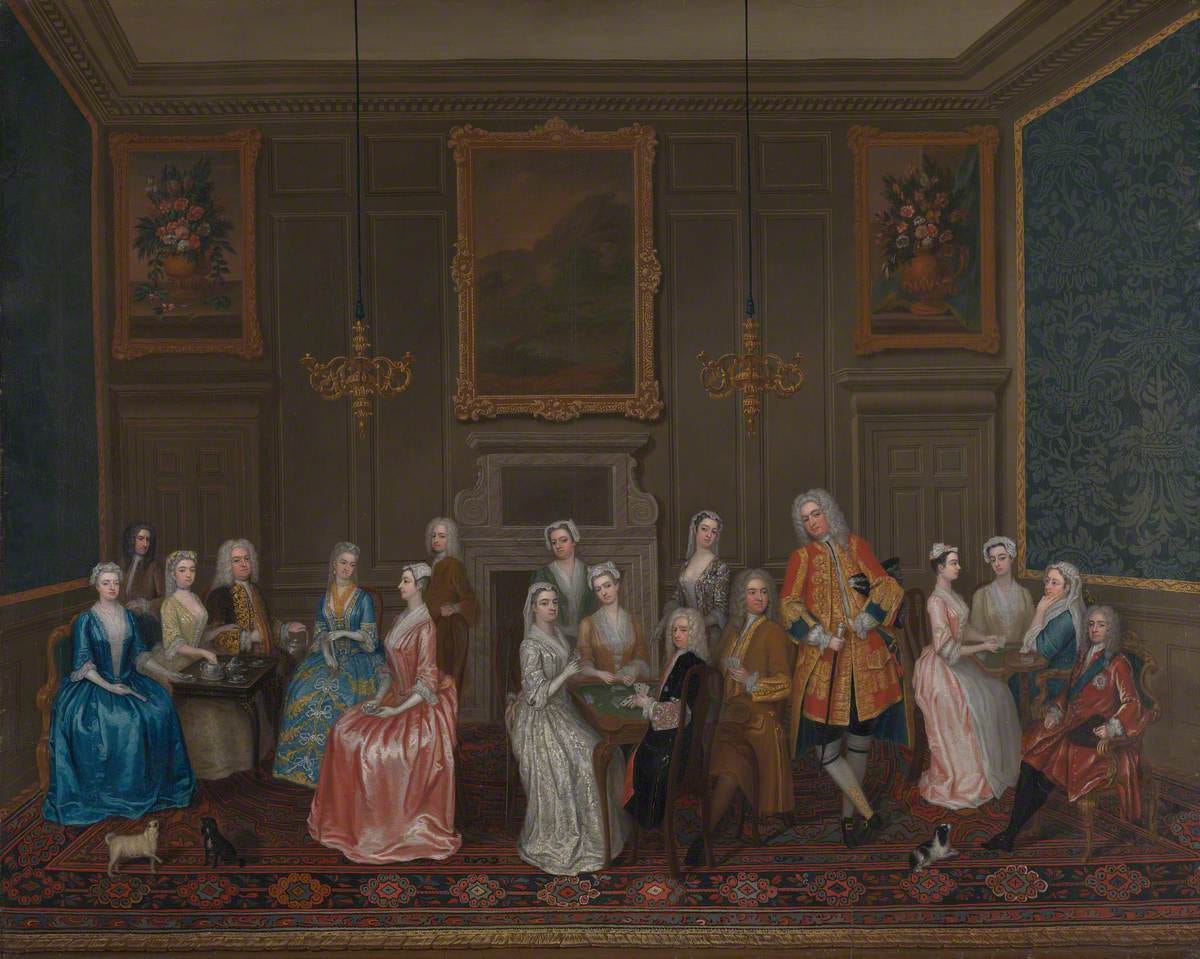Dear friends,
“He who can sit down premeditatedly to do a bad action will content himself with a bad excuse.”
Since I last wrote, Clarissa has undergone yet another ordeal. She has been arrested for debt, accused by Mrs Sinclair of failing to pay her rent. Rent for the rooms where she was held against her will. Oh the injustice! She is taken away by the sheriff’s men and locked in a prisoner’s room. The situation provides a valuable insight into her state of mind. She is afraid to stay, “in a room where others could come in at their pleasure, but she could not leave at her own.” She is also extremely afraid of men:
“With men! — Must go with men! — I am not used to go with strange men! — Indeed you must excuse me!”
“I charge you, said she, as you will answer it one day to my friends, that you bring no gentleman into my company. I charge you don’t. If you do, you know not what may be the consequence… If you bring a man or men to me, be the pretence what it will—
She stopped there, and looked so earnestly, and so wildly, they said, that they did not know but she would do some harm to herself if they disobeyed her; and that would be a sad thing in their house, and might be their ruin. So they promised that no man should be brought to her, but by her own consent.”
Clarissa feels too vulnerable to sleep in her prison bed. Instead, she, “sat up in a chair all night, the back against the door; having it seems thrust a broken piece of a poker through the staples where a bolt had been on the inside.” To avoid undressing, she endures the indignity of living in soiled clothing. The ‘vile’ women who have orchestrated this plot are positively gleeful: “As you deserve, Miss Harlowe. Pride will have a fall.” They wish to see Clarissa sink even further, offering a gentleman who will pay her bail if she will consent to see him. Another seducer, no doubt designed to inure Clarissa into a life of prostitution.
What I find so interesting is that Richardson understands the trauma of rape, even though he lacks the 21st century language to describe it. Throughout everything, Clarissa maintains her decorum and the moral high ground. She refuses to be drawn in by the women’s baiting. She is, however, increasingly unwell and resigned to an early death. The doctors brought in to help her diagnose a state of ‘grief’ — what we might today perceive as depression. She can only help herself by taking, “air, moderate exercise, and cheerful company.” Later, victim blaming creeps in as Clarissa is accused of courting her own demise.
It is clear Lovelace had no prior knowledge of the arrest and the ‘vile’ women working at Mrs Sinclair’s take the blame.“How much more cruel and insulting are bad women, even than bad men!” exclaims Clarissa. They are motivated by jealousy and revenge. Yet Belford places responsibility squarely at Lovelace’s door. Not only because Lovelace has helped to turn the women ‘bad’ by seducing them in the first place: “The wretched women, it must be owned, act but in their profession; a profession thou hast been the principle means of reducing these two to act in.” But because their plot was the inevitable extension of Lovelace’s own instructions. Clearly the women, who have witnessed his own actions, believed he would condone their scheme.
Clarissa’s incarceration further highlights Lovelace’s narcissism as he exclaims, “’Tis impossible that Miss Harlowe should ever have suffered as thou hast made me suffer, and as I now suffer!” Women, he believes, are built to endure pain. In letter 341, he has the audacity to chide Clarissa for lacking modesty in her anger. In conversation with Hickman he berates her for courting death, and for speaking openly about the rape, endangering both their reputations. In letter 367, when Lovelace enters society, we see the consequences of her outspokenness. Everyone gossips but, shockingly, this makes him no less attractive to the ladies. Any sense that he is truly remorseful is soon scrubbed away.
Meanwhile, Belford writes of Lovelace’s wit, “endeavouring to carry off ludicrously the subjects that most affect thee.” In other words, Lovelace possesses the uncanny ability to put everything he desires in jeopardy by failing to take it seriously. It is this flippancy, in a letter to Anna Howe, that sees Lovelace’s remorse questioned, and his offer of marriage inevitably rejected.
Belford is rapidly becoming our hero — verbally dressing down Lovelace and giving Clarissa the confidence to return to her former lodgings under his protection. Yet he is unable to entirely break free of Lovelace’s grasp, and frequently argues his friend’s case to Clarissa. The theme of friendship — the differences between male and female friendship, and the idea of ‘virtuous’ friendship — are neatly explored in this series of letters, particularly letter 339. Belford might be on the path to reform but, as we close the book this week, Lovelace is already planning to disguise himself and break his promise to stay away from Clarissa.
If you would like to follow our read-along please subscribe below, visit your Substack subscription settings and make sure Letters & Libations is checked. Please get in touch if you would like to be added to the Instagram chat group.
Featured image is ‘Tea Party at Lord Harrington's House, St James's,’ by Charles Philips, 1730. Courtesy of the Yale Centre for British Art.


